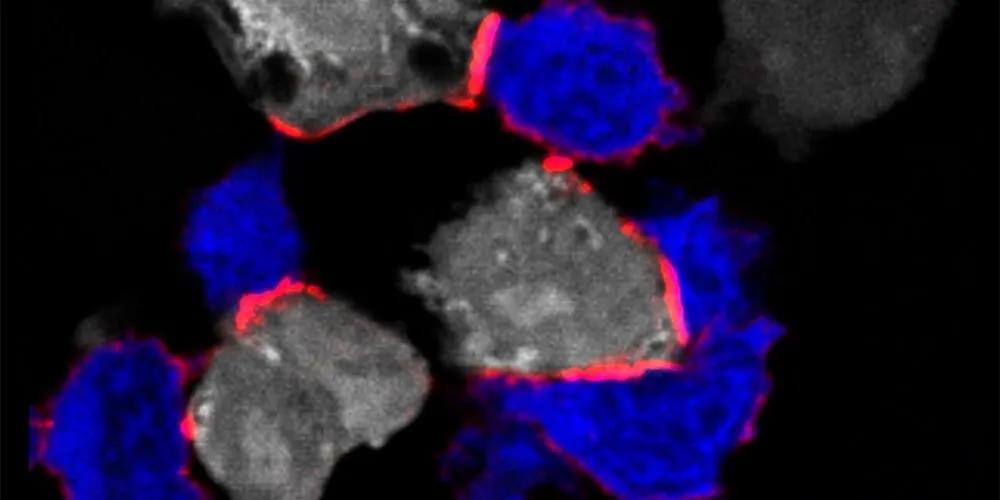
Many people think of calcium, vitamin D and even iron when they supplement nutrition, but few think of magnesium.
Many human activities need magnesium: activate muscles and nerves, increase body energy, digest protein, carbohydrates and fat.

Research has found that magnesium may help immune cells fight cancer
On January 19, 2022, a study published in the American journal Cell by the research team of the University of Basel in Switzerland showed that T cells can help immune cells fight cancer in an environment rich in magnesium.

The experiment provided mice with cancer cells in the body with a diet lacking magnesium ions. It was found that the cancer cells in the mice spread faster. Further supplement the diet containing magnesium ions and found that the immune ability of mice was enhanced.
The experiment provided mice with cancer cells in the body with a diet lacking magnesium ions. It was found that the cancer cells in the mice spread faster. Further supplement the diet containing magnesium ions and found that the immune ability of mice was enhanced.

T cells (blue) form immune synapses through LFA-1 and attack tumor cells (white)
Experiments show that:
Those with low serum magnesium level have poor immune ability;
The level of magnesium was increased locally, and the immune response of T cells to cancer cells was strengthened.
The researchers re analyzed the data from earlier studies in cancer patients and found that immunotherapy was less effective in patients with insufficient magnesium in the blood.
Therefore, magnesium may play a role in promoting cancer treatment as a “right-hand assistant” of human immune system.
The body sends these signals when magnesium is deficient
In life, many people will have symptoms such as insomnia, depression, anorexia and fatigue, which may be due to the lack of magnesium. Magnesium is one of the essential minerals of human body. When magnesium is deficient, the body will prompt seven signals:

Difficulty falling asleep
Magnesium helps raise the level of a neurotransmitter called gamma aminobutyric acid (GABA) in the brain, promotes relaxation and sleep, and helps alleviate sleep disorders.
Depressed
Magnesium can improve human hormone regulation and brain serotonin level, which is conducive to blood glucose balance. Brain serotonin is very important to maintain emotional stability, so magnesium deficiency is more prone to depression and anxiety.
Migraine
According to a study published in the European Journal of neuroscience research, magnesium can effectively reduce the severity and frequency of migraine symptoms, which is related to magnesium’s ability to regulate hormones and relax muscles.
Eyelids twitch
One of the most common manifestations of magnesium deficiency is eyelid jumping. This is because magnesium regulates muscle movement. If the level of magnesium in the body is low, muscles in many parts of the body will spasm and twitch.
Cardiac arrhythmia
Magnesium helps maintain a normal heart rhythm. Doctors will supplement magnesium intravenously to reduce atrial fibrillation and arrhythmia, because magnesium will reduce the level of nutrients such as calcium.
Always feel tired
Magnesium is an essential element of human energy production system. Human body needs magnesium to generate adenosine triphosphate for production capacity.
Skin is prone to problems
Magnesium can reduce inflammation in the body, and inflammation in the body or lead to skin diseases such as acne, eczema and psoriasis. Magnesium can also regulate vitamin D content and keep skin healthy.
6 kind of people are prone to lack of “magnesium”
Magnesium deficiency can lead to nausea, weakness, vomiting, or loss of appetite.
With the increase of deficiency, numbness, tingling, muscle spasm, arrhythmia, etc. may also occur, and even lead to hypocalcemia and hypokalemia. There are six groups of people who are easy to get caught:

Calcium supplement population
After middle age, the rate of calcium loss is greater than that of calcium deposition. The risk of osteoporosis increases. Many middle-aged and elderly people will supplement calcium, but high calcium will competitively inhibit the absorption of magnesium.
People with uneven diet
Middle aged people tend to get fat, people who don’t have time to exercise will lose weight through diet, and hunger will affect the intake of magnesium; Some middle-aged people are happy without meat, but a high protein diet will reduce the absorption rate of magnesium.
Tea lovers
Caffeine in strong tea contains diuretic ingredients, which will increase the loss of magnesium.
Diabetic population
The middle-aged and the elderly are the high incidence of diabetes. Diabetes will increase the excretion of magnesium, and magnesium deficiency will reduce the efficiency of insulin and form a vicious spiral.
People who take certain drugs for a long time
Some drugs such as bisphosphonates and tetracycline antibiotics will affect the absorption of magnesium, and some diuretics (such as furosemide, hydrochlorothiazide tablets and diuretic acid) will increase the excretion of magnesium.
Regular drinkers
Excessive drinking can cause pancreatitis and alcoholic ketoacidosis, which increase magnesium excretion. Long term excessive drinking is easy to lead to serious loss of magnesium.
To become a “magnesium” eater, you should:
Have more green leafy vegetables
Green leafy vegetables are the most abundant in magnesium, followed by coarse grains, nuts, meat and milk.
However, oxalic acid affecting magnesium absorption exists in green leafy vegetables, and phytic acid affecting magnesium absorption exists in coarse grains. It is suggested to blanch vegetables with boiling water before frying; When cooking coarse grain, soak it for a while in advance.
There is no need to take magnesium supplements
Drink milk, eat one or two meat and eat more “magnesium” food every day, which can fully meet the body’s magnesium demand. There is no need to take magnesium supplements.
Avoid these drinks
Avoid beverages that will cause magnesium loss in the body, such as alcohol, strong tea, coffee, etc. drink more water.
Balanced and diversified diet
Eat fruits and vegetables in moderation at ordinary times, and match the thickness of staple food. Reduce high salt and high oil diet.
The doctor should advise the doctor to take magnesium supplements in an appropriate proportion of 1:1 when necessary.
Magnesium is more important than calcium for children and the elderly; If you have poor renal function, you must be evaluated by a doctor before you can supplement magnesium.
Comments